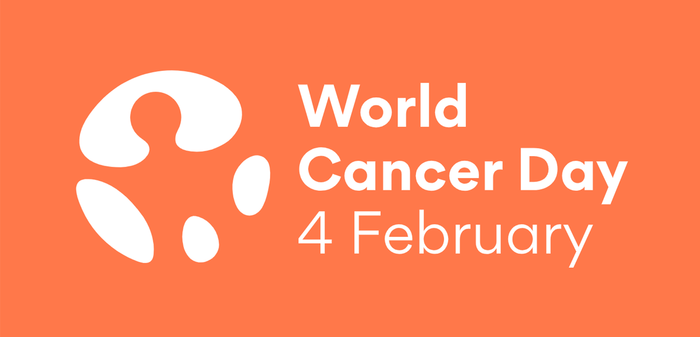Raise lymphoma awareness on World Cancer Day
Published on: 4 February 2022Friday 4 February is World Cancer Day, an international day to raise awareness and understanding of all types of cancer, including lymphoma.

All too often we hear people say ‘I had never heard of lymphoma until I had a diagnosis’, despite it being the fifth most common cancer in the UK.
Lymphoma can be particularly difficult to diagnose, and many people don't understand which parts of the body are affected. In addition, without the word 'cancer' some people are, understandably, confused about whether or not lymphoma is in fact a cancer.
Lymphoma is a type of blood cancer, although it is also often called a cancer of the immune system. There are over 60 different types of lymphoma, although in broad terms they are split between Hodgkin and non-Hodgkin lymphoma.
At Lymphoma Action, we support people to understand the complexity of lymphoma through our breadth of information in various formats including our website, books and information including Easy Read series, podcasts, webinars, videos and through a range of education and training events. In addition, we have a helpline, buddies and online support meetings where people can talk about their experience of lymphoma. We hope to help them feel less isolated with a cancer that few people have heard of, as well as empower them to make decisions about their health and care.
World Cancer Day is an opportunity to emphasise that it is important to see your GP if you have symptoms of lymphoma:
- A new lump (swollen lymph nodes): typically in the neck, armpit, groin or other places
- Weight loss: losing weight quickly without trying to
- Drenching sweats: especially at night and so much that nightclothes and bedding become soaked
- Itching: which might be worse in hot weather or at night
- Fatigue: feeling so exhausted that it’s hard to carry on with your usual activities
- Fever: a high temperature (above 38oC) that might come and go. Fever can also be a sign of infection and frequent infections, or ones that are more severe or last longer, can also be a symptom.
If you have any questions about lymphoma, or are concerned about any of the symptoms, call our helpline on 0808 808 5555.
Published: 4 February 2022
